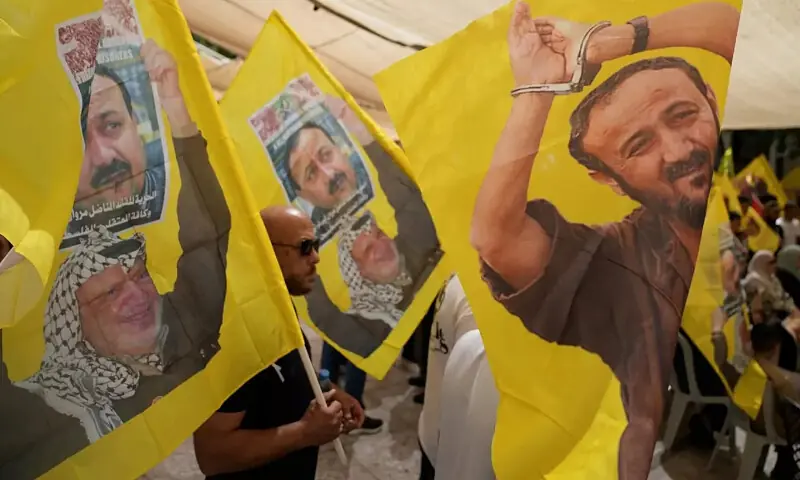Israel excludes Barghouti from prisoner swap amid Gaza ceasefire
Marwan Barghouti, widely regarded as the most popular and potentially unifying Palestinian leader, was not among the prisoners Israel said it would free under the new Gaza ceasefire deal — a glaring omission that keeps him at the centre of regional debate.
Barghouti, 66, is serving multiple life sentences after his 2004 conviction in connection with attacks that killed five people, reports AP.
Despite those convictions, he remains a potent symbol for many Palestinians: polls consistently show him as the most popular Palestinian politician and some supporters liken his stature to that of Nelson Mandela — a unifying figure who could lead a fragmented leadership if released.
Hamas and other Palestinian factions have repeatedly demanded Barghouti’s release in past negotiations, and senior Hamas officials have said they continue to press for him and other high-profile figures.
Israeli authorities, however, have declined to include him on the preliminary list of roughly 250 prisoners posted on the government website, and it was not immediately clear whether that list is final.
Analysts and Israeli officials say Barghouti’s appeal — a blend of support for a two-state solution alongside past backing of armed resistance — makes him especially feared by some in Jerusalem.
They argue a freed Barghouti could emerge as a powerful rallying point across Palestinian politics, potentially eclipsing the current leadership of President Mahmoud Abbas.
Barghouti’s life and political arc are well known across the West Bank: born in the village of Kobar in 1959, he rose through student politics at Bir Zeit University, emerged as an organiser in the First Intifada, was deported, returned under the 1990s peace arrangements and rose to lead Fatah in the West Bank.
During the Second Intifada, Israel accused him of ties to the Al Aqsa Martyrs Brigades; Barghouti has long defended Palestinians’ right to resist occupation even while expressing support for a two-state settlement.
His continued detention has practical and symbolic weight. Critics in Israel point to past exchanges — notably the 2011 release of Yahya Sinwar, later a top Hamas commander — as cautionary examples of the risks Israel perceives in freeing senior figures.
For Palestinians who see Barghouti as a consensus successor to an ageing and unpopular Palestinian Authority leadership, his absence from the list underscores ongoing tensions over leadership, legitimacy and the terms of any durable settlement.
For the latest news, follow us on Twitter @Aaj_Urdu. We are also on Facebook, Instagram and YouTube.

























Comments are closed on this story.